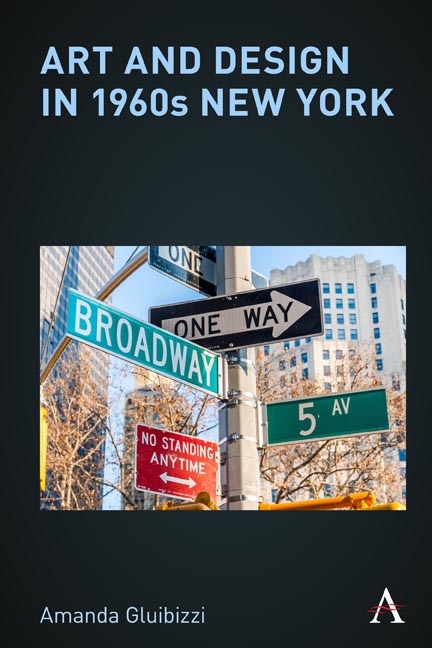Book contents
- Frontmatter
- Contents
- List of Figures
- Acknowledgments
- Introduction: The Entire Visual World
- 1 Designs on 1960s New York: The Image of Pop and North by Northwest
- 2 Breaking the Rules with the Beetle: Volkswagen’s Revolutionary Advertising and the Visual Wit of Andy Warhol’s Pop Art
- 3 Navigating by the Vernacular Glance: Billboards, Signs, and the Urban Combine
- 4 Way-Words: Wayfinding by Following Pieces
- 5 What’s the Matter with the Megalopolis?
- Notes
- Bibliography
- Index
2 - Breaking the Rules with the Beetle: Volkswagen’s Revolutionary Advertising and the Visual Wit of Andy Warhol’s Pop Art
Published online by Cambridge University Press: 02 March 2021
- Frontmatter
- Contents
- List of Figures
- Acknowledgments
- Introduction: The Entire Visual World
- 1 Designs on 1960s New York: The Image of Pop and North by Northwest
- 2 Breaking the Rules with the Beetle: Volkswagen’s Revolutionary Advertising and the Visual Wit of Andy Warhol’s Pop Art
- 3 Navigating by the Vernacular Glance: Billboards, Signs, and the Urban Combine
- 4 Way-Words: Wayfinding by Following Pieces
- 5 What’s the Matter with the Megalopolis?
- Notes
- Bibliography
- Index
Summary
As suggested in the last chapter, the year 1959 was a revolutionary one for design, witnessing as it did the establishment of advertising rules by David Ogilvy in the publication Advertising Directions, as well as their explosion by such designs as Saul Bass's poster and title sequence for the film North by Northwest. With his use of suspension techniques and a gridded layout, Bass played with the rule-bound examples of advertising success elucidated by Ogilvy to create advertising design. However, 1959 was not only remarkable because of the production of these two men. The year saw the engagement between the design communities of America and Eastern and Western Europe and their respective styles manifest themselves in competitive fashion, as well as in a new interplay between the international style of German typographic design and “all-American” advertising and industrial design. Perhaps most famously, the notorious “kitchen debate” exchange between Vice President Richard Nixon and Soviet premier Nikita Khrushchev (held on July 24, 1959) focused global media attention on American product design, with the Soviet response submitting that “Our kitchen is just as good.” American design seemed to be about streamlining, automation, and happy housewives able to cook their family meals at the press of a button. Thus, the ad campaign for the Volkswagen (VW) Beetle, which had its debut in 1959 and which featured a bumpy, ugly car, attempted to sell to consumers everything that American products and their attendant advertisements were telling them to reject. This chapter focuses on the VW campaign and the rules it broke— and made— throughout its surprisingly successful run on “American” values.
Volkswagen's Revolutionary Campaign
In the third episode of the television show Mad Men, the protagonist Don Draper examines the “Lemon.” advertisement for Volkswagen, the second such ad produced by the firm Doyle Dane Bernbach (DDB) for the car company. While Draper's colleagues, corporate men working in the gray flannel suit environment presumed for Cary Grant's Roger Thornhill in North by Northwest, mock the ad because of its product, its tagline, and its use of a black-and-white photograph, Draper quietly observes that this is the vision of the future for their profession:
- Type
- Chapter
- Information
- Art and Design in 1960s New York , pp. 43 - 70Publisher: Anthem PressPrint publication year: 2021



